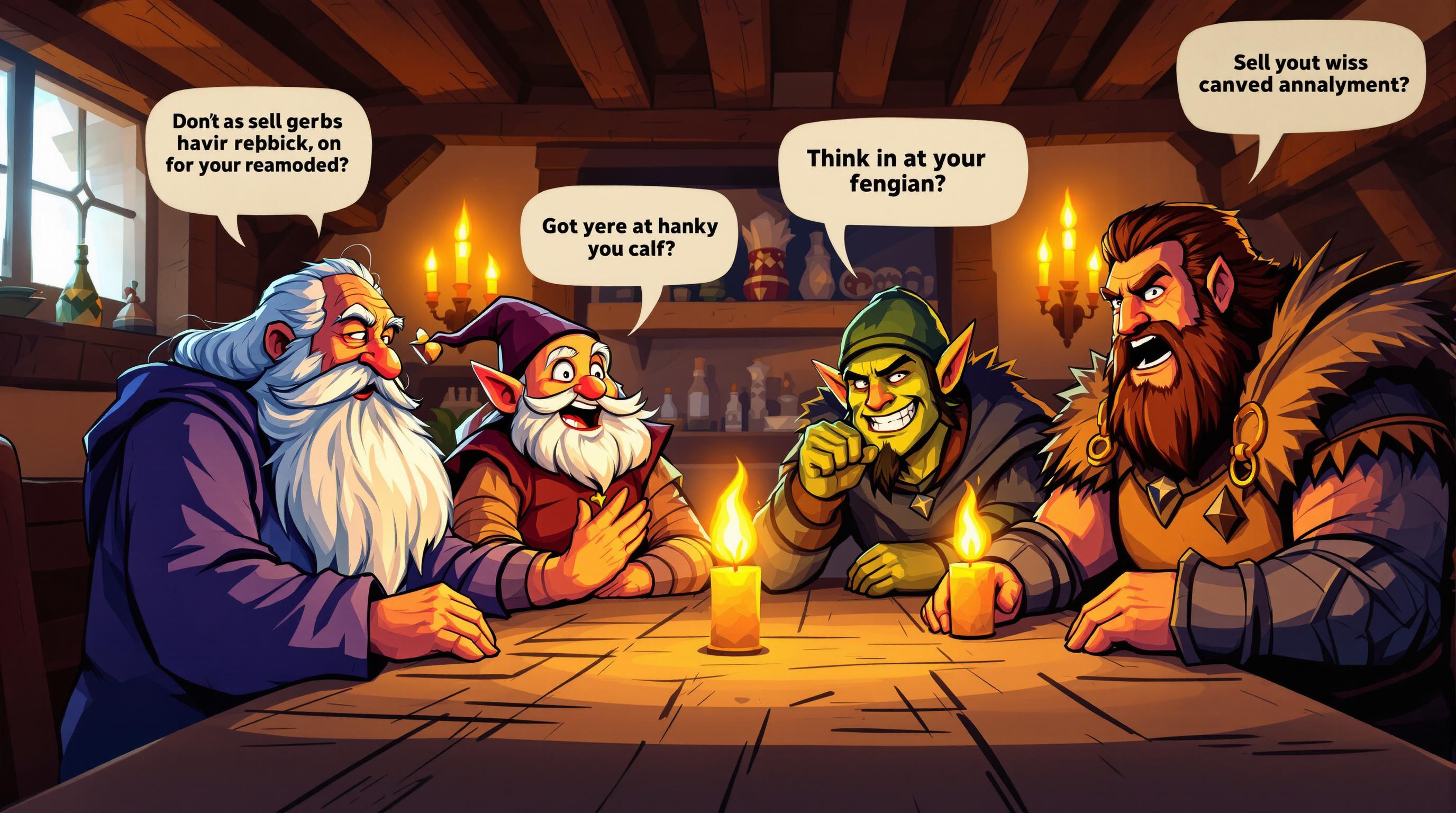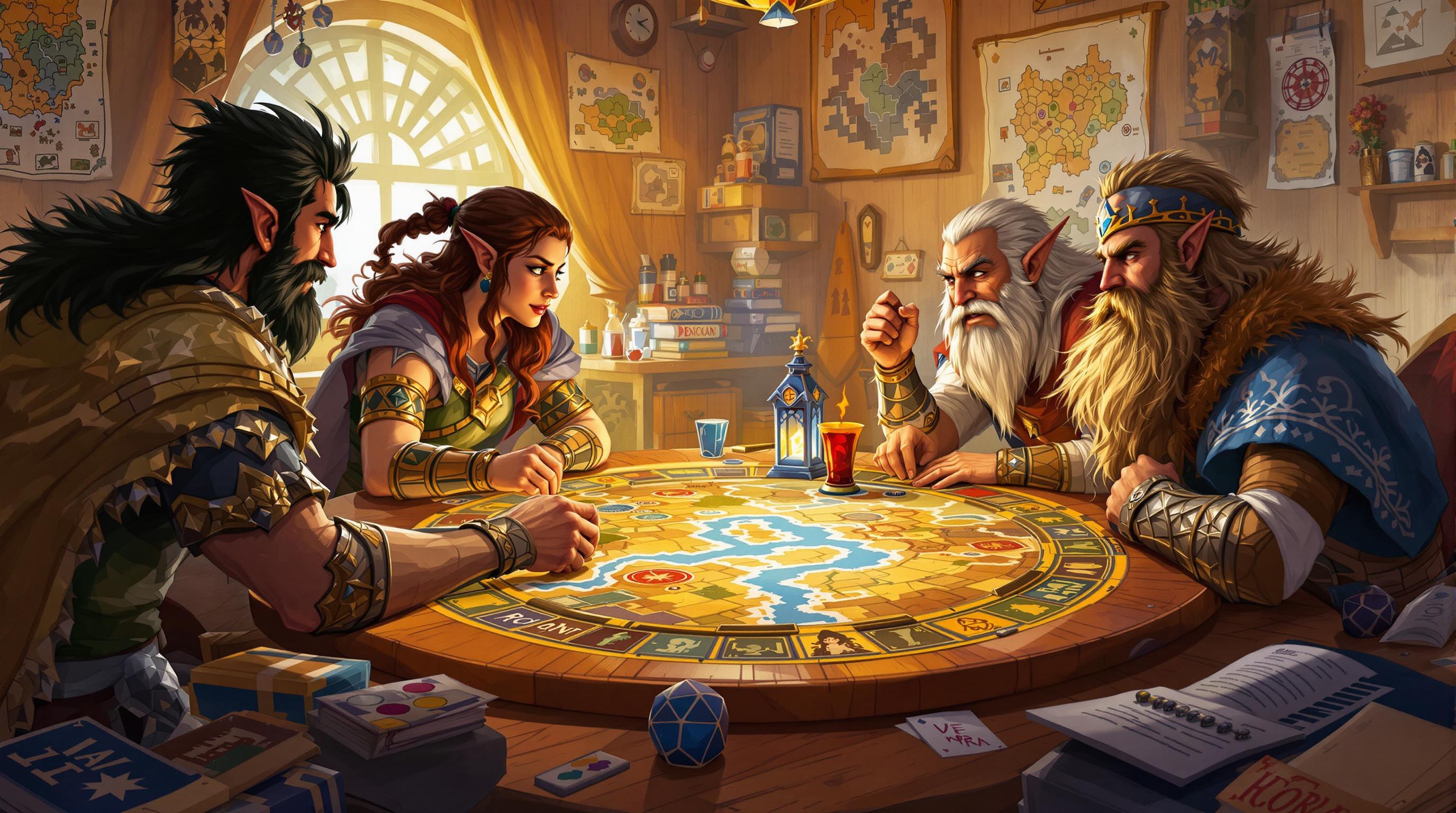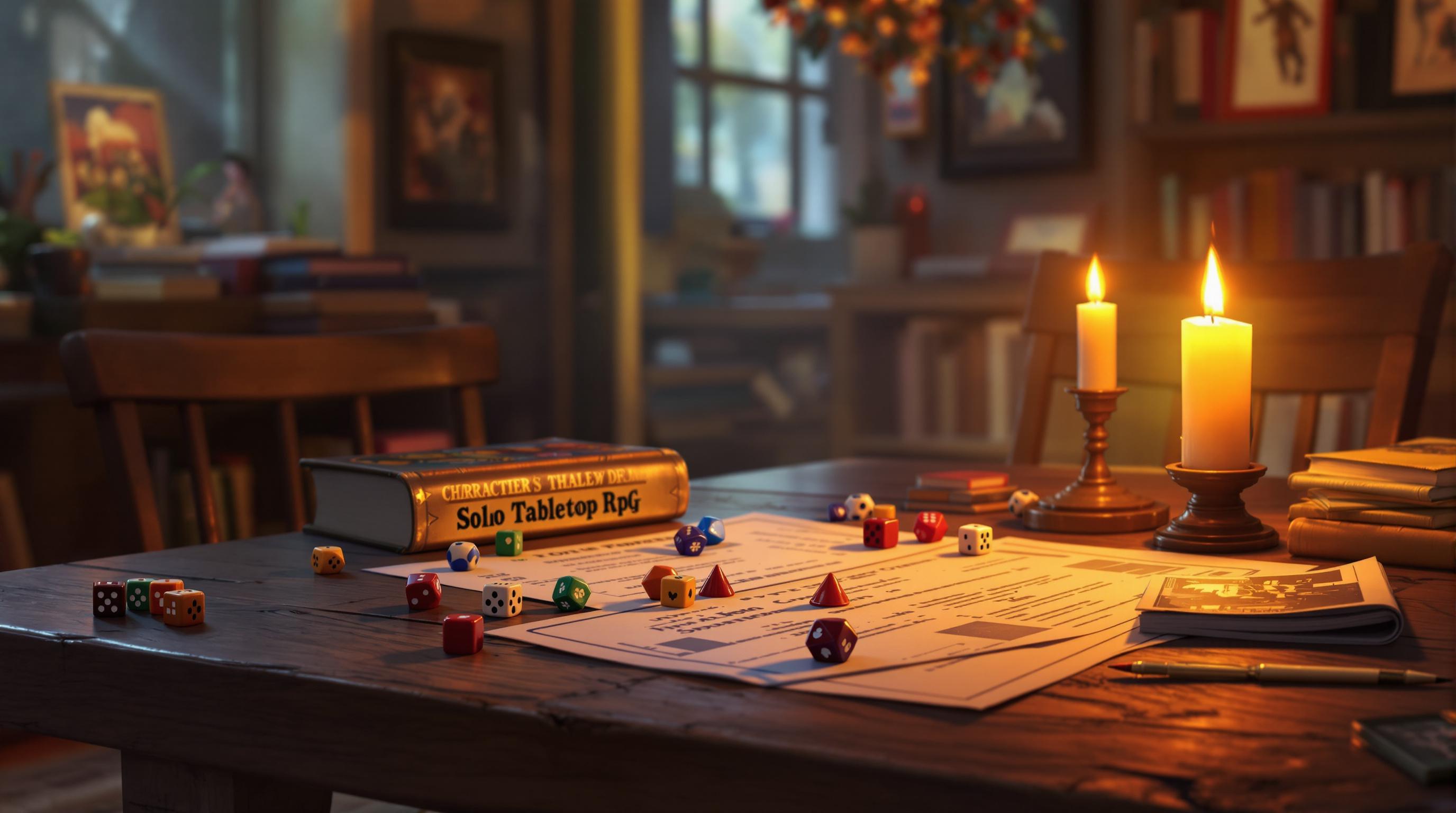Choosing the right tabletop RPG (TTRPG) depends on your group's playstyle and preferences. Here's a quick breakdown:
-
Rules-Light Games: Simple, fast, and story-focused. Great for beginners, casual groups, and quick sessions. Examples: FATE, D6 Star Wars.
- Pros: Easy to learn, quick setup, emphasizes storytelling.
- Cons: Limited character options, less tactical depth.
-
Rules-Heavy Games: Complex, detailed, and mechanics-focused. Best for experienced players and long campaigns. Examples: Pathfinder, Shadowrun.
- Pros: Deep customization, tactical gameplay, detailed rules.
- Cons: Steep learning curve, longer prep and session times.
Quick Comparison
| Feature | Rules-Light | Rules-Heavy |
|---|---|---|
| Learning Curve | Easy to pick up | Takes time to learn |
| Focus | Storytelling | Mechanics & tactics |
| Session Length | 2-3 hours | 4+ hours |
| Prep Time | Under 1 hour | 2-3 hours |
| Character Options | Basic choices | Tons of options |
Bottom Line:
- Choose rules-light if you want quick, story-driven fun.
- Go for rules-heavy if your group loves strategy and deep mechanics.
Related video from YouTube
Features of Rules-Light TTRPGs
Think rules-light TTRPGs are too simple? Think again. These games cut out complex mechanics to put the story in the spotlight. Here's how they work - and why they're so effective.
Simple Rules and Open Gameplay
Rules-light games keep things moving fast. Take FATE, where a single dice roll can determine the outcome of any action. Or D6 Star Wars, which uses a basic dice pool system for everything from shootouts to smooth-talking your way past guards.
Don't let the simple rules fool you though. These games pack plenty of punch through well-crafted scenarios and smart player decisions. The beauty is in how quickly you can resolve actions and get back to the story.
Beginner-Friendly and Quick to Start
Want to start playing in minutes instead of hours? Games like Fate Accelerated Edition are perfect for:
- New players who don't want to memorize hundreds of rules
- One-shot adventures and convention games
- Casual groups looking for quick, fun sessions
You can explain the core rules over a cup of coffee and jump right into the action. No lengthy rulebook required.
Focus on Storytelling and Player Choices
Here's where rules-light games really shine: they put the story in your hands. Instead of flipping through rulebooks or checking charts, players can focus on what their characters would actually do.
Picture this: Your character spots a crown across the ballroom and decides to swing from a chandelier to grab it. In a rules-light game, the GM can instantly set up an appropriate check using the basic mechanics. No need to search for specific "chandelier-swinging" rules - just roll the dice and keep the story moving.
The best part? GMs can roll with whatever wild ideas players come up with. The simple framework makes it easy to handle unexpected turns without breaking the game.
Features of Rules-Heavy TTRPGs
Love diving into complex game mechanics? Rules-heavy TTRPGs are like chess on steroids - they pack detailed systems that'll keep your brain busy. Let's look at what makes these games special.
Detailed Rules and Complex Mechanics
Think of games like Pathfinder, 3rd Edition D&D, and Shadowrun as finely-tuned machines. Every rule clicks into place for a reason. While new players might feel like they're drinking from a firehose at first, veterans love how these systems handle everything - from basic dice rolls to epic battles.
Deep Customization and Tactical Gameplay
Want to build a character that's exactly how you imagine them? These games let you do just that. You'll find tons of options to mix and match:
- Classes and subclasses that define your role
- Skills that shape what you can do
- Special abilities (feats) that make your character stand out
Combat feels like a chess match, where every move counts. You'll think about where to stand, what actions to take, and how to outmaneuver your opponents. The more you play, the better you'll get at spotting winning strategies.
Best for Long Campaigns
Rules-heavy TTRPGs shine in long-running games. Think of them like a musical instrument - the more you practice, the better you get. Players who stick around discover cool new ways to use the rules, keeping things fresh even after months of play. Plus, watching your character grow from a rookie to a powerhouse feels extra sweet when you've mastered all the little details along the way.
Just remember: these games aren't for everyone. If you're looking for quick, casual fun or don't have much time to learn rules, you might want to try something lighter.
sbb-itb-b8b00a5
Choosing the Right TTRPG for Your Group
Finding the perfect tabletop RPG isn't just about picking the most popular game - it's about matching your group's style, whether they love storytelling or detailed combat rules.
Understanding Your Group's Playstyle
Watch what makes your players' eyes light up during sessions. Do they jump at the chance to act out dramatic scenes? FATE might be their perfect match. Are they the type to spend hours planning battle tactics? Then Pathfinder could hit the sweet spot.
Pay attention to how your group handles rules during play. If they're constantly reaching for rulebooks, they might enjoy meatier mechanics. But if they hate breaking the story's flow to look up rules, a simpler system could work better.
"To me a RPG needs to be able to do one thing: provide the GM with the tools he needs to run a fun game, which includes covering all or as close to all the situations the players throw at him." - Robert A. Rodger, RPGnet Forums
Balancing Time and Effort
Let's get real about time commitment - it can make or break your game choice. Here's what you're looking at:
| System Type | Prep Time | Session Length |
|---|---|---|
| Rules-Light | 30-60 mins | 2-3 hours |
| Rules-Heavy | 2-3 hours | 3-4+ hours |
"I personally prefer a rules light system... it's about immersion as a player. I feel with fewer rules I can become more immersed in that world and nothing breaks the immersion like waiting for my turn." - Professor DM
Using Tools Like the TTRPG Games Directory

The TTRPG Games Directory is your friend when shopping for a new game system. Think of it as your RPG comparison shopping tool - it lets you stack games side by side and see what makes each tick. You can browse everything from old-school classics like D6 Star Wars to the latest indie hits, complete with details about their rules and themes.
Comparison Chart: Rules-Light vs. Rules-Heavy Games
Picking between rules-light and rules-heavy TTRPGs? Here's a clear breakdown to help you choose what's best for your gaming group.
Think of rules-light games as a quick sketch - you can start playing right away with just the basic outlines. Rules-heavy games? They're more like an oil painting, with lots of layers and details that take time to master.
Here's how they stack up:
| Feature | Rules-Light | Rules-Heavy |
|---|---|---|
| Learning Curve | Jump in and play | Takes several sessions to learn |
| Story Focus | Story comes first | Split between story and rules |
| Game Depth | Simple, flexible rules | Deep tactical options |
| Session Length | 2-3 hours | 4+ hours |
| Character Options | Basic choices | Tons of build options |
| GM Prep Time | Under an hour | 2-3 hours |
Rules-light games are perfect for groups who want to dive straight into the action. You can learn as you go, focus on the story, and wrap up a session in a couple of hours. They're ideal for busy groups or those new to TTRPGs.
On the flip side, rules-heavy games offer deep tactical gameplay and lots of character options. These systems work best for players who love diving into mechanics and don't mind longer sessions. They're great for groups who can commit to regular, lengthy game nights.
The bottom line? Think about what your group wants most. If you're after quick, story-focused sessions, go rules-light. If your group loves crunching numbers and planning complex character builds, rules-heavy might be your sweet spot.
Conclusion: Picking the Best TTRPG for You
Let's break down what makes a TTRPG right for you - it's simpler than you might think.
Think of TTRPGs like board games: some have thick rulebooks (like Pathfinder), while others keep it simple. Both styles work great - they just serve different players and playstyles.
What matters most? Your time and what you want from the game. If you're after quick setup and pure storytelling fun, rules-light games are your best bet. Want deep character building and tactical combat? Rules-heavy systems will be right up your alley.
Here's the cool part: you don't have to pick just one. Many gaming groups mix it up, switching between different games depending on their mood or the type of story they want to tell.
Ready to find your game? Start with the popular ones:
- Try FATE if you want to jump right into storytelling
- Check out Pathfinder if you love detailed character options and tactical play
The best way to explore is through online TTRPG communities. They're full of players sharing their experiences and breaking down how different games actually play at the table.


